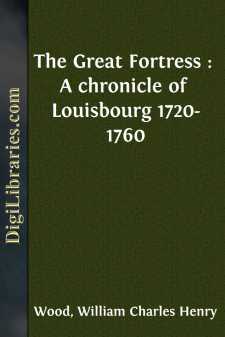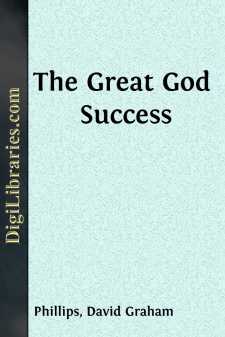Fiction
- Action & Adventure 180
- Biographical 15
- Christian 59
- Classics
- Coming of Age 5
- Contemporary Women 3
- Erotica 8
- Espionage/Intrigue 12
- Fairy Tales, Folklore & Mythology 236
- Family Life 169
- Fantasy 117
- Gay 1
- General 596
- Ghost 32
- Historical 808
- Horror 43
- Humorous 160
- Jewish 25
- Legal 4
- Medical 22
- Mystery & Detective 315
- Political 49
- Psychological 41
- Religious 64
- Romance 159
- Sagas 11
- Science Fiction 730
- Sea Stories 113
- Short Stories (single author) 537
- Sports 10
- Suspense 1
- Technological 8
- Thrillers 2
- Urban Life 31
- Visionary & Metaphysical 1
- War & Military 173
- Westerns 199
Classics Books
Sort by:
CHAPTER XVIII. FREEDOM PROCLAIMED TO ALL. While mentally revolving the question of Emancipation—now, evidently "coming to a head,"—no inconsiderable portion of Mr. Lincoln's thoughts centered upon, and his perplexities grew out of, his assumption that the "physical difference" between the Black and White—the African and Caucasian races, precluded the idea of their living...
more...
CHAPTER XXII. FREEDOM'S SUN STILL RISING. After President Lincoln had issued his Proclamation of Emancipation, the friends of Freedom clearly perceived—and none of them more clearly than himself that until the incorporation of that great Act into the Constitution of the United States itself, there could be no real assurance of safety to the liberties of the emancipated; that unless this were...
more...
CHAPTER XXVIII. FREEDOM AT LAST ASSURED. As to the Military situation, a few words are, at this time, necessary: Hood had now marched Northward, with some 50,000 men, toward Nashville, Tenn., while Sherman, leaving Thomas and some 35,000 men behind, to thwart him, had abandoned his base, and was marching Southward from Atlanta, through Georgia, toward the Sea. On the 30th of November, 1864, General...
more...
by:
Norman Maclean
While the thing is still fresh in my mind I will try to put it down on paper—the incredible thing that has happened in our parish. When we had least thought about life's great things, we have come face to face with the greatest. We had been for long years living on the surface of things. The sun basked on the slopes of the hills, purple at eve; we came back from the offices in town, plunged...
more...
"After us, the deluge!" said Louis XV of France. He died in 1774, and the remaining quarter of the eighteenth century witnessed social changes the most radical, the most widespread which had convulsed civilization since the fall of Rome. "As soon as our peasants seek education," said Catharine II of Russia to one of her ministers, "neither you nor I will retain our places."...
more...
CHAPTER I THE LAST SEA LINK WITH FRANCE 1720-1744 The fortress of Louisbourg arose not from victory but from defeat; not from military strength but from naval weakness; not from a new, adventurous spirit of attack, but from a half-despairing hope of keeping one last foothold by the sea. It was not begun till after the fortunes of Louis XIV had reached their lowest ebb at the Treaty of Utrecht in 1713....
more...
THE CANDIDATE FROM YALE. "O your college paper, I suppose?" "No, I never wrote even a letter to the editor." "Took prizes for essays?" "No, I never wrote if I could help it." "But you like to write?" "I'd like to learn to write." "You say you are two months out of college—what college?" "Yale." "Hum—I thought Yale men went...
more...
by:
Charles Archer
Chapter I For sheer havoc, there is no gale like a good northwester, when it roars in, through the long winter evenings, driving the spindrift before it between the rocky walls of the fjord. It churns the water to a froth of rushing wave crests, while the boats along the beach are flung in somersaults up to the doors of the grey fisher huts, and solid old barn gangways are lifted and sent flying like...
more...
THE PARTY ON SPECIAL NO. 218 Any one who hopes to find in what is here written a work of literature had better lay it aside unread. At Yale I should have got the sack in rhetoric and English composition, let alone other studies, had it not been for the fact that I played half-back on the team, and so the professors marked me away up above where I ought to have ranked. That was twelve years ago, but my...
more...
THE BROWN HAND Every one knows that Sir Dominick Holden, the famous Indian surgeon, made me his heir, and that his death changed me in an hour from a hard-working and impecunious medical man to a well-to-do landed proprietor. Many know also that there were at least five people between the inheritance and me, and that Sir Dominick's selection appeared to be altogether arbitrary and whimsical. I can...
more...











